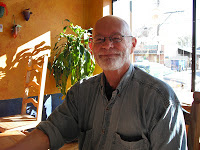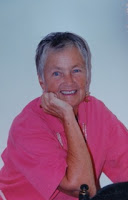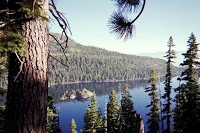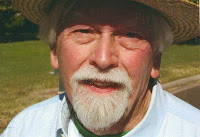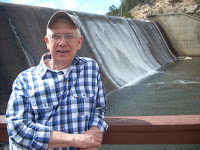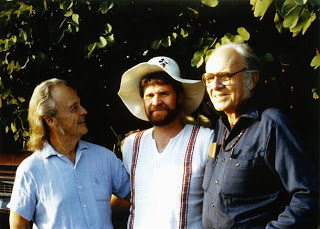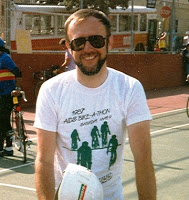Back when I was an early youth, somewhere around the age of 8, 9, or 10, I began to recognize a difference between my emotional and sexual needs and those of my peers. I had no concrete idea what it meant since I’d always thought there was nothing odd or strange about mine. I just wasn’t very “into the regular scene.” It was hard to associate with most kids, any kids, male or female. I became emotionally secluded. Sports weren’t of interest and my physical self wasn’t up to snuff anyway being a scrawny kid. My self isolation haunted me, forever being an outsider always looking in at those I longed to play with. As this continued over the years, and it did, the more it became true. There came a short time of inclusion during the late Junior High and Senior High years. I made contact with the neighborhood duck-tail squad, the greasers, those so omnipresent in the ‘50’s. My interest in motorcycles and cars had always been, and that’s why they accepted me.
Cars and motorcycles were the “the thing” with them. It changed my acceptability, obscured any oddities of mine at least for that brief moment in time. A too brief period of hospitality was handed me. Then it all began changing. Girls were becoming an object of interest and then an obsession for the guys but for not me.
Inside I wasn’t at all like the grease covered duck-tailed guys with their leather motorcycle jackets and tight Levi’s. I desperately wanted to own a jacket and Levi’s like theirs but mom wouldn’t permit it because they were “just plain nasty.” Finally the critical age of puberty with it’s attendant emotional change for everyone arrived accompanied by an avalanche of total upheaval. The guys were becoming men; taller than me, frequently muscular, hairy, crew-cuts, ducktails had begun disappearing in town, “T” shirts the rage. How they loved showing impressions of their new manhood, through their tight Levi’s. That made me sweat, a lot! I had interesting, moist, dreams at night.
Guys were obsessed with the possibility of finding and seducing girls, while I dreamt of the same but with one of them. I got to be close to these young studs only in school occasionally but nothing more. They looked good, smelled good and when I had a very limited chance to just touch one, they felt good…heavenly! Needless to say I embarrassed myself with an erection from time to time. Too soon I was classified a social outcast, known as a weirdo, an object of scorn. There were others who like me weren’t accepted, straight and not, but it still hurt. Any hospitality accomplished by me had been rescinded, permanently.
I came to understand what the words some used to call me in my earlier years meant. Their use became much more frequent. I was a homo, a fruit, a faggot, a queer, something to be avoided at all cost. Back then that was all there was. I was a monster, loathed by God and man. The church and bible told me so, again and again! Wanting these beautiful young men romantically and sexually was just wrong, sinful and evil…end of story!
There was no hospitality left for me. I was shoved out of the box.
OK, that was then. Many years of fear, self rejection and self hatred have passed. But over those years, now, a new dawn seems on the horizon. I’m far, far better at being me now.
The word “gay” always puzzled me! The acronym LGBT doesn’t, but that word “gay” still seems odd. It meant and still means “full of energy, happy, of glee, a sense of being carefree. In a world where we’re still tormented by too many it doesn’t make too much sense.
It’s now in the press, heard in the media around the world. The Gay Community. Gay Pride Month with parades and parties. Pride is displayed or at least attempted around the globe. But the word “gay” was and can still be mentioned with contempt. A “gay” is a “self avowed homosexual,” some still interpret it that way. Yes it’s true we are, but that one nasty-assed statement always made me cringe and shrivel as it still can.
It’s a new day now. Countless others are like me. The old scars still exist in me and won’t disappear completely but in this day and age us LGBTQ’ers are becoming ever more in the public venue what with Gay Marriage. There is an opportunity of hospitality for me in my quickly approaching old age! “Just forget the past and reach out “get over it already”. I hear it too often.
Inclusion! Now! Something I never thought possible in my lifetime is happening right under my nose! I accept myself today with much less trepidation. I’m part of a growing community of people who are learning to live without shame, without so much fear although there are monsters out there that can and do haunt our lives. Every single time I hear the hateful rhetoric of yesteryear in this day and age I shake inside.
Damn it to hell, all I ever wanted was a boyfriend, someone to be with, to call my own; to be his in the same way. Though three long term partnerships have come and gone I’ve never achieved that most primitive of goals from early childhood. I’m still very much that smallish eighteen to “twenty something” year old boy, still looking, at the exalted age of 73. Will I be lucky before I finally fall over? I wonder and still hope.
I also wonder if any of us have really found that one special man or woman. If some of us have we should thank the same God our loyal opposition uses to condemn us.
About the Author
“I’m just a guy from Tulsa (God forbid). So overlook my shortcomings, they’re an illusion.”
